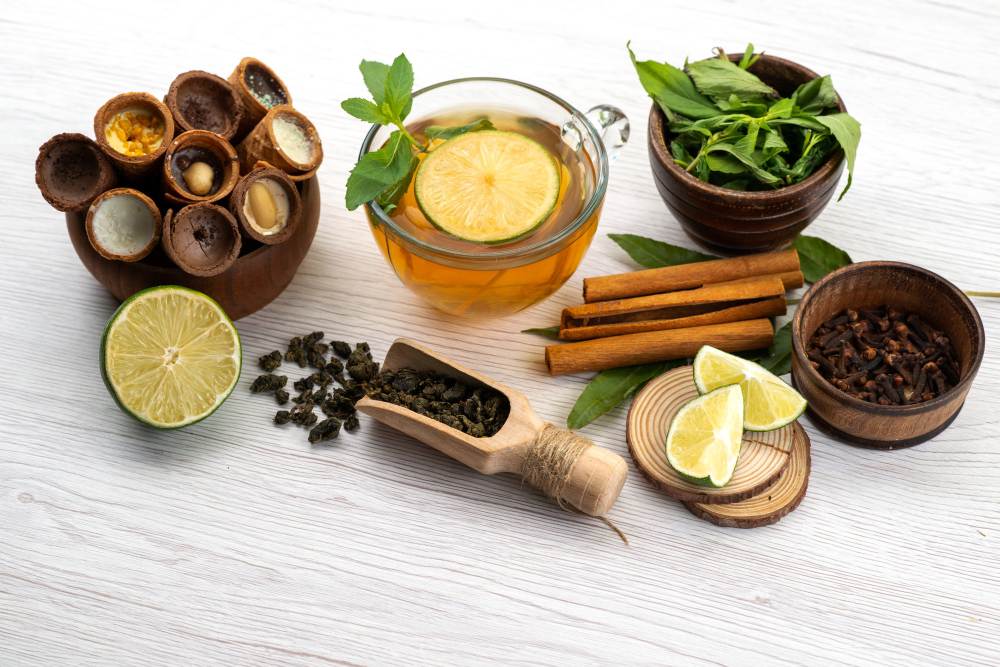Traditional Chinese Medicine (TCM) is a comprehensive system of healing that has been practiced for millennia. Rooted in the philosophy of balance and harmony, TCM encompasses a variety of therapeutic modalities, including acupuncture, herbal medicine, dietary therapy, and mind-body practices like tai chi and qigong. Among these, herbal medicine plays a pivotal role, offering a vast array of natural remedies for a wide range of health conditions.
The Foundation of Herbal Medicine in TCM
The foundation of herbal medicine in TCM lies in the belief that health is dependent on the free flow of qi, or life force, throughout the body. When this flow is disrupted, imbalances occur, leading to disease. Herbal formulas are carefully selected and combined to address these imbalances and restore harmony.
The theory of the five elements (wood, fire, earth, metal, and water) and the concept of yin and yang are fundamental to understanding the use of herbs in TCM. Each herb is classified according to its taste, temperature, and therapeutic actions, which are believed to influence the flow of qi and balance the five elements.
Key Concepts in TCM Herbal Medicine
- Qi, Blood, and Yin and Yang: Herbs are chosen based on their ability to tonify, invigorate, or disperse qi, blood, yin, or yang. For example, herbs with a warming nature are often used to tonify yang, while cooling herbs are used to clear heat and disperse excess yang.
- Meridians: Herbs are believed to target specific meridians in the body, influencing the flow of qi and addressing imbalances in particular organs or systems.
- Pattern Identification: TCM practitioners carefully assess a patient’s symptoms, tongue coating, pulse, and other factors to determine the underlying pattern of disharmony. This pattern identification process is crucial for selecting the appropriate herbal formula.
Commonly Used Herbs and Their Actions
- Adaptogens: Herbs like ginseng and astragalus are known for their ability to help the body adapt to stress and improve overall vitality.
- Tonics: Herbs such as rehmannia and he shou wu are used to nourish and strengthen the body, particularly the kidneys and liver.
- Clear Heat Herbs: Herbs like chrysanthemum and forsythia are used to clear heat, reduce inflammation, and treat conditions associated with excess heat, such as fever and skin eruptions.
- Disperse Cold Herbs: Herbs like ginger and cinnamon are used to disperse cold, improve circulation, and treat conditions associated with cold, such as abdominal pain and diarrhea.
Formulating Herbal Formulas
The process of formulating a herbal formula is a complex art that requires a deep understanding of TCM theory and clinical experience. Practitioners consider a variety of factors, including the patient’s age, gender, constitution, and presenting symptoms. Herbal formulas may be composed of a single herb or a combination of several herbs, depending on the complexity of the condition.
Preparation and Administration of Herbal Formulas
TCM herbal formulas can be prepared in various forms, including:
- Decoctions: The most common form, decoctions are prepared by simmering herbs in water.
- Granules: Pre-packaged granules are convenient for patients and are often used for long-term treatment.
- Pills: Pills are a concentrated form of herbal medicine and are often used for chronic conditions.
- Tinctures: Herbal tinctures are made by extracting the active constituents of herbs using alcohol.
Herbal formulas are usually taken orally, but they can also be applied topically for skin conditions.
Safety and Efficacy of TCM Herbal Medicine
While herbal medicine has a long history of safe and effective use, it is important to consult with a qualified TCM practitioner before taking any herbal remedies. Some herbs may interact with prescription medications or have contraindications for certain individuals. Additionally, the quality of herbal products can vary, so it is important to purchase from reputable sources.
Herbal medicine is an integral part of Traditional Chinese Medicine, offering a natural and holistic approach to healthcare. By addressing the root causes of disease and restoring balance to the body, TCM herbal formulas can be a valuable adjunct to conventional medical treatment. However, it is important to approach TCM herbal medicine with an open mind and to work closely with a qualified practitioner to ensure safe and effective treatment.





